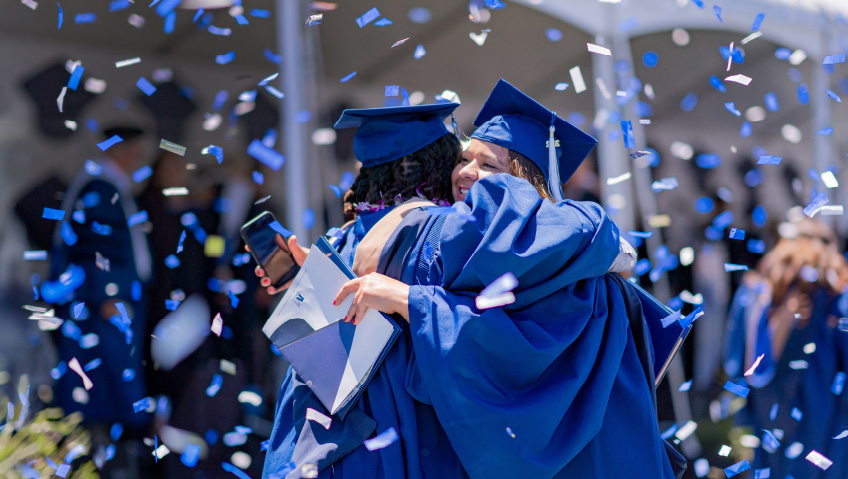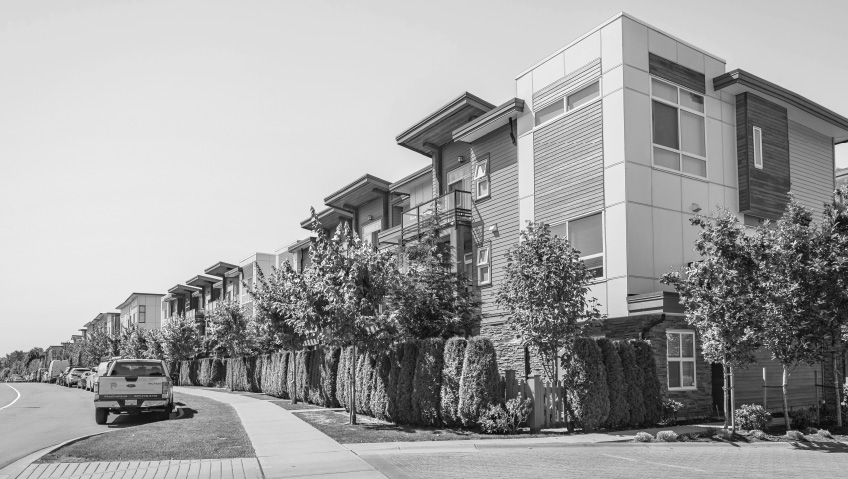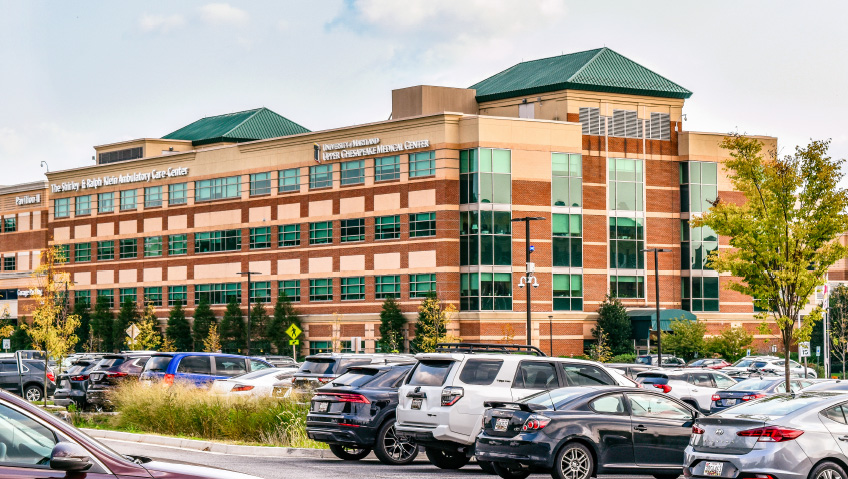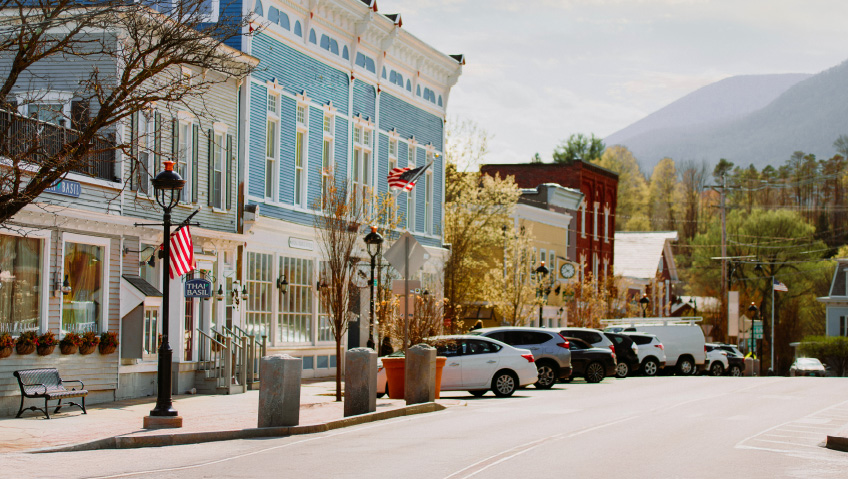Established in 1927, Menlo College of Atherton, California is a private, non-profit, accredited, four-year residential school, offering bachelor’s and master’s degrees. With only 810 students, it redefines the meaning of personal. However, in Menlo’s case, this has never been a hindrance—the school has punched above its weight for almost a hundred years.
A century in the valley
The college’s location since 1927—in the heart of Silicon Valley and the San Franciso Bay area, one of the world’s most entrepreneurial and innovative regions—has allowed Menlo College to create a valuable market niche for its students. Employers recognize that Menlo graduates have the skills, integrity, and passion to make meaningful contributions in an innovation economy.
“The opportunity to be situated in the middle of Silicon Valley is a tremendous value-added proposition,” said Steven Weiner, who has served as President for the past seven years, and for several years before that in what he calls a hybrid position, a combination of CFO and COO. “We are intentional about our efforts to leverage our location to every extent possible for our students by bringing the valley into the classroom through guest speakers and as adjunct faculty—people whose full-time job is at Google or Facebook,” he said.
“We also have an innovative program we call Silicon Valley Immersion, which involves taking students from the campus out to various high-tech companies in the area so they are exposed to the workplace, which opens opportunities for them to develop professional networks.”
In addition, there is a requirement for students to complete a supervised internship between their junior and senior years. According to Weiner, the majority finish their internships with a job offer upon completion of their final year of study. “Employers recognize the value of hiring a Menlo College student. I don’t know if we attract more academically ambitious students than other schools, but our graduates leave with a broad array of skills, which I think reflects on our small size where students have a closer relationship with faculty, the internship program, and our emphasis on building professional networks,” he said.
“We think those are the ways to build the soft skills that are essential in the workplace, that employers value, and that so many larger schools struggle to provide.”
Celebrating diversity
While Menlo College looks to the future, leveraging its location in the modern world’s most famous valley, it is also mindful of the past and that it is located within lands traditionally stewarded by the Puichon tribe, one of more than 50 Indigenous groups of the Bay Area. In 2020, Menlo College committed to honoring the heritage of the land and its Indigenous Peoples as part of its renewed commitment to achieving social justice.
In the beginning, Menlo admitted only male students who, Weiner said, “looked like me. But we have since opened our doors as broadly as we can,” welcoming minority groups that historically have faced barriers to accessing post-secondary education. The college now has two federal designations as a minority-serving institution, serving Hispanic students and a group called AANAPISI, which references Asian, Native American, and Pacific Island students.
“Only one percent of all universities and colleges in the U.S. have the status of serving two minority groups, and that is a point of pride with us,” said Weiner. “And in addition to those minority groups from the U.S., we have students from 48 different countries represented here. We see this as another way to add value to the Menlo experience. The workforce is diverse and students going through college in a homogeneous setting are not always comfortable in a diverse workplace, but diversity is in our blood here—whether geographic, ethnic, or economic,” he said.
“We also have students who have aged out of the foster care system, and we have Dreamers. That mix enriches the experience for all of us when we are challenged to understand the different perspectives people bring to the table.”
Building skills
Menlo College’s four-year undergraduate degree program primarily focuses on business education with a strong liberal arts base. Students can choose from a wide range of majors including accounting, business analytics, entrepreneurship, finance, international business, marketing, psychology, real estate, and sports management. In 2024, two graduate-level programs were introduced: a Master of Arts in Sport and Performance Psychology (MASPP), and a Master of Science in Information Systems (MSIS).
Freshman year can be a daunting experience for any student, but even more so for minority groups, who in many cases are the first generation in their family to attend college and are unaware of what to expect. One-third of Menlo’s students are first-generation.
“We’re always looking for opportunities to improve the scaffolding we build around our students,” Weiner said, referring to support services, “and once they don’t need the scaffolding, we peel it away so they can stand on their own.”
One such piece of scaffolding is the Rising Scholars Program, available to incoming freshmen before the term starts to give them a leg up in skills development and understanding what it means to be a college student. With a grant from the Department of Education reserved for minority-serving institutions, the college has also launched Pathways to Student Success, which enables it to provide robust academic counseling services and a peer counseling initiative, provide expanded mental health resources, and offer a new curriculum focusing on skill set development, expanding the writing and math center.
One of Menlo’s recent initiatives was the opening of a public speaking center complete with a sound lab program where students can hone their communications skills, skills which Weiner believes are essential for success.
“The pitch that I made to the generous civic-minded alumnus who sponsored the program was that we want our graduates to be able to speak in a compelling way with confidence, whether representing themselves in a job interview, representing their organization, or speaking out about an issue in a political campaign or at a PTA meeting. We are in our second year of that program now and I think it is proving to be of tremendous value.”
Residential relief
To be sure, Silicon Valley is an expensive place to live, and students have struggled to find affordable off-campus housing, leading to prohibitively long commutes. Weiner points out that studies show that commuting correlates negatively with student retention and graduation rates, both of which are much higher for residential versus commuting students. Additionally, the time constraints on commuters limit their ability to participate in sports teams, student government activities, or arts and cultural activities, all part of a good liberal arts education. All these activities are available at Menlo, but would be less accessible for students facing a long commute at the end of the day.
“We were making education available to students whose forebears were historically denied access to education, but we would still be denying them access if they couldn’t, practically speaking, obtain affordable housing,” Weiner said.
Funding a second residence hall was a challenge for a college whose campus had not seen a new building in 45 years. Fortunately, two donors, Bay Area developer John Arrillaga and an anonymous alumnus, both saw the value in a Menlo education. Together with yet other donors, the college received donations of more than $28 million, making possible the construction of a 288-bed residence that today bears Arrillaga’s name. This increased Menlo’s residential capacity by 50 percent, which means that now, 75 percent of the student body is housed on campus.
The $5 million challenge
“Being a small school with a small endowment is very challenging,” Weiner said, “and the rate of small school closures in the U.S. is alarming.”
Yet there are benefits to remaining small. Weiner spent 16 years working in administration in a large university and said he knew only the few students who worked for him. Here, he knows almost everyone and is positive about how the college successfully tracks its students. “I believe our students benefit from the extent to which we monitor their progress,” he said. “We may lose a student, but it is never because we lost track of that student, and our students engage with our faculty and the services we offer.”
He goes on to express his belief that the school’s approach is making a positive impact on the lives of the students now, and in the future will have an impact on the lives of their children and even their grandchildren. I told him about a Canadian First Nations teaching that I had learned from a Mi’kmaq artist—that the effects of what we do today will impact the next seven generations. “I like that,” he said.
“Now we have another alumnus who also believes in the value of the Menlo education and says it significantly enhanced the trajectory of his life. He wants to see it continue and has issued a five million dollar challenge to other alumni. He’s put his money where his mouth is and he’s told me, ‘Go out and raise five million dollars and I will match it, dollar for dollar,’” Weiner said. “A ten million dollar influx of cash would greatly improve our financial security and allow us to offer greater financial support to our students in navigating the cost of higher education while continuing to enhance our programs which directly benefit them.” As of December 31, 2024, they met their goal.
There is no doubt—Menlo College’s nearly century-long journey is a testament to the enduring value of small, focused, and community-driven education. By embracing its location in the heart of Silicon Valley, championing diversity, and prioritizing personal and professional growth, the college has created a unique ecosystem where students thrive. Its commitment to innovation, accessibility, and holistic development ensures that Menlo graduates are not only well-prepared to contribute to an ever-evolving global economy but are also equipped to lead with integrity and purpose.
As Menlo looks to the future, its unwavering dedication to student success and its ability to adapt to challenges will undoubtedly secure its place as a transformative force in higher education for generations to come.






